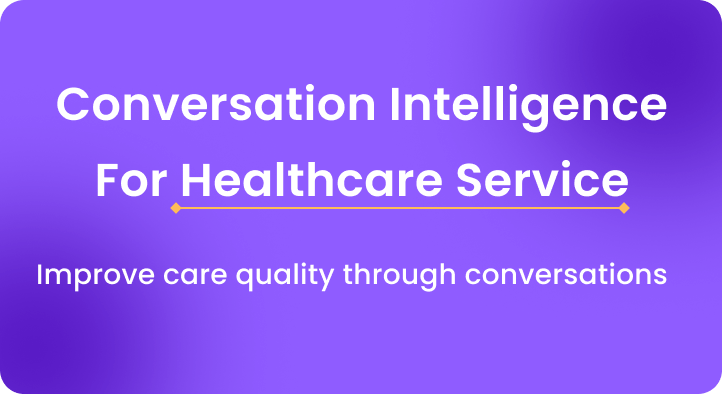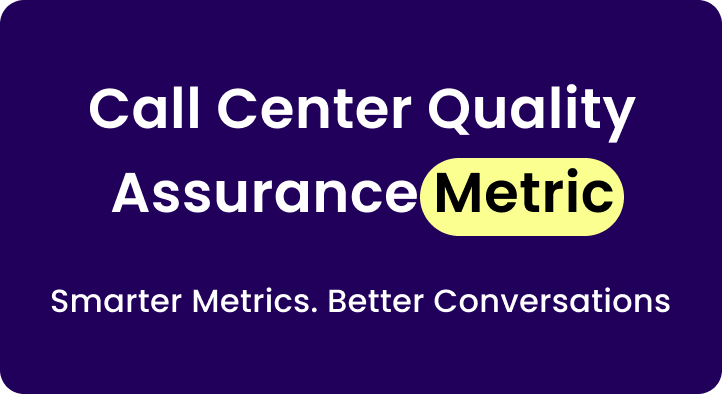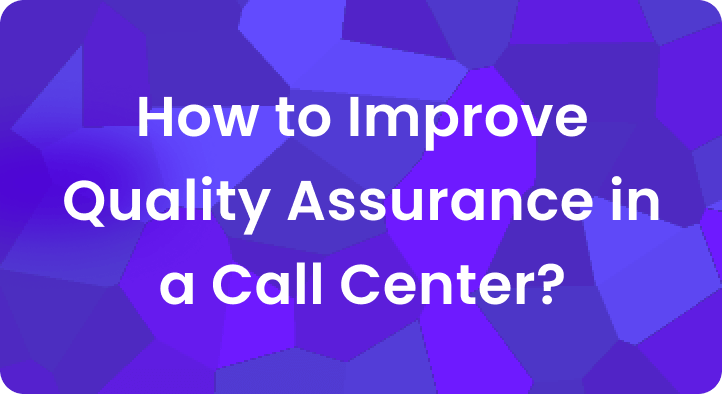Manual quality audits are slow, subjective, and cover only a fraction of interactions.
In today’s fast-paced, high-expectation environment, that’s not enough.
AI changes the game by auditing 100% of calls, delivering instant, bias-free scoring, and spotting trends humans often miss.
This article explores exactly what role AI plays in automating quality audits -and why it’s redefining QA for modern teams.
1. The shift from manual to smart QA
Let’s be honest – the old way of doing quality audits was exhausting.
QA teams sat through call after call, hoping their small sample represented what was really happening. It rarely did.
Slow. Biased. Expensive.
Then AI showed up -not the sci-fi kind with robots in suits, but practical, behind-the-scenes AI that chews through hours of calls in minutes. It doesn’t get bored.
It doesn’t miss things. And it gives QA managers a way to actually see the full picture.
2. Quick refresher
In a call center or service team, a quality audit is basically your report card for performance. It’s the process of reviewing calls, chats, or tickets to check:
- Did the agent follow the rules?
- Was the customer treated well?
- Did the resolution stick?
The challenge? When you only check 2% of calls, you’re guessing. AI changes that widen the lens to cover everything.
3. How AI slides into the audit process
Here’s how a modern, AI-assisted QA workflow plays out:
- Pull in the data: Every recording, chat log, and ticket lands in one place.
- Transcribe and tag: AI turns speech into text and tags it by topic, sentiment, and risk level.
- Score automatically: It applies your scoring system, catching missed scripts, compliance slip-ups, and tone issues.
- Flag the weird stuff: If there’s a sudden spike in refund calls or complaints, it shows up right away.
- QA reviews the highlights: Humans step in to verify tricky cases or coach agents on specific points.
It’s still teamwork -just with a partner who never sleeps.
4. The roles AI plays in automation
a) Covering 100% of interactions
Gone are the “lucky call” or “unlucky call” scenarios. AI reviews every single interaction, so no agent gets judged on a fluke.
b) Cutting feedback delays
Why wait three weeks to tell an agent about a mistake? AI can flag it the same day, so the fix happens while it’s fresh.
c) Removing bias
AI doesn’t have a bad Monday or get swayed by a charming tone. It scores by your rules, every time.
d) Spotting patterns people miss
Maybe calls over 8 minutes tend to end badly. Or maybe one script always gets a higher CSAT. Humans might overlook that -AI won’t.
e) Powering better coaching
Instead of “You need to improve empathy,” AI can pull exact moments from calls where empathy was missing. Coaching gets specific, fast.
5. The payoff for QA teams
With AI running audits, you can:
- Save hours of repetitive listening.
- Catch more compliance issues before they blow up.
- Base training on actual data, not hunches.
- Keep a constant pulse on service quality.
6. But AI’s not perfect
Yes, it’s smart -but it’s not a mind reader. It might miss sarcasm or cultural cues.
Sometimes a script break is a good thing, and AI can’t always tell.
That’s where human judgment stays crucial.
Think of AI as your high-speed scanner, not your final judge.
7. Real-life example
A mid-sized mortgage lender was stuck with three QA specialists reviewing 150 calls a month. After bringing in AI:
- They audited every one of their 12,000 calls.
- Compliance issue detection jumped 4x.
- Feedback time dropped from three weeks to just two days.
- Six months later? Their CSAT was up 9%.
8. What’s next for AI in audits
- Real-time nudges: Agents get prompts during calls.
- All-channel coverage: Calls, chats, emails -one score.
- Predictive alerts: Spotting an at-risk agent before their numbers drop.
- Auto-training links: AI sends training modules tied to specific issues.
9. Wrapping it up
AI in quality audits isn’t about replacing people.
It’s about removing the grunt work so QA managers can focus on what actually moves the needle -coaching, strategy, and improving customer experience.
If you’re still sampling a handful of calls and calling it a “full audit,” you’re driving with one eye closed. AI opens both.



